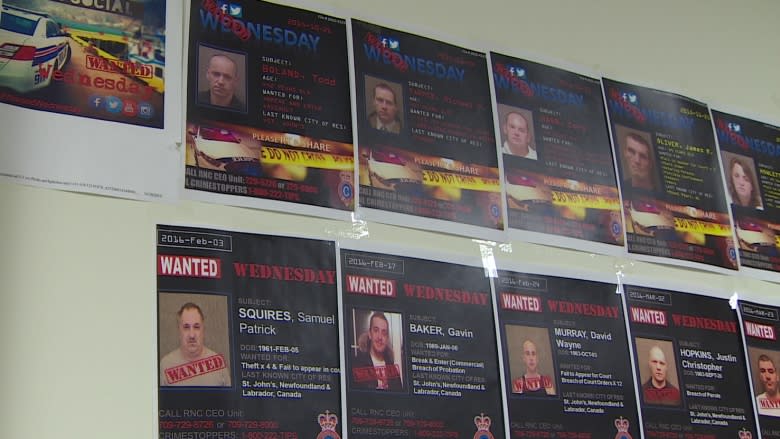RNC cautions against social media shaming alleged thieves
The Royal Newfoundland Constabulary is cautioning businesses against posting pictures of alleged shoplifters online, a practice that some feel is an example of "social media shaming."
"We always caution people that they could open themselves up to civil liability, in cases where somebody is a youth, for example," says Const. Geoff Higdon.
The RNC itself had great success using social media to identify suspects, Higdon said.
Every Wednesday, the RNC Twitter account posts pictures of a person with an outstanding warrant. The social campaign is called "Wanted Wednesday."
But Higdon said businesses or individuals that post similar pictures are treading on risky ground.
Bidgood's using Facebook to catch shoplifters
Bidgood's Supermarket in the Goulds neighbourhood of St. John's is among the businesses regularly using Facebook to identify suspected shoplifters.
Co-owner Leslie Bidgood said the frequency of shoplifting thefts has left the business with little choice.
"We were basically getting hit every day, and not just in our supermarket but in our liquor store," Bidgood told CBC's St. John's Morning Show.
"It just got to the point where the RNC weren't really getting much success, so we just tried our best to help them out in any way they could."
Bidgood's is certainly not the only business turning to social media to identify thieves.
In 2015, Old Town Pizzeria posted security camera footage of four women stealing money from the restaurant cash register. On Twitter, a hashtag was created for the crime — #pizzaskeets trended on social media, and the culprits were identified minutes after the video was posted.
In July 2015, John Gordon replicated Old Town's approach when his St. John's home was broken into.
Gordon posted his own security camera footage of the robbery, which was mixed with the song You're a Mean One, Mister Grinch and the hashtag #SummerGrinch. Again, the culprit was quickly identified.
Different when police do it
Meanwhile, Const. Higdon said he sympathizes with businesses and individuals who have been the victims of theft.
But he warns the RNC's "Wanted Wednesday" campaign is different than an individual posting pics of alleged criminals.
"We always say, they're alleged to have committed X, Y and Z. But the reality is that the officers, through the investigation, have determined that the person they've identified, there's what we would call reasonable probable grounds to lay a charge," he said.
"So when businesses are posting photos of people and saying, this person is a thief or suspected to be a thief, if there's no … reasonable, probable grounds, they could be slandering a person if there's no charges laid."
Higdon added that in cases of repeat or frequent offenders, police can often identify suspects by sight without needing any help from social media.
But he acknowledged the "Wanted Wednesday" campaign may be tacitly encouraging people to seek social media justice on their own.
"People are noticing that we're, pretty much, identifying and arresting every single person we've ever put up on social media," said Higdon.
"So that's doing two things; of course it's putting that idea in people's heads to use social media to help identify, but it's also instilling more confidence in police which is encouraging more people to report crimes to us."
Higdon said he isn't specifically reprimanding Bidgood's for its social media posts, adding the RNC wants to work with businesses and individuals to identify and apprehend thieves.



